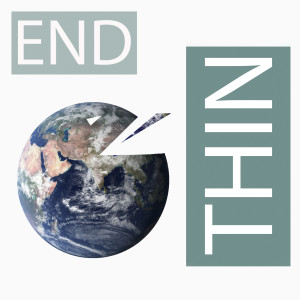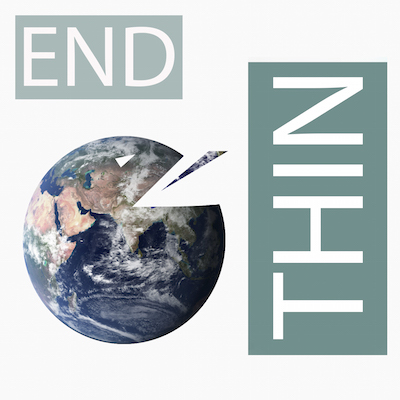Episodes

Friday Nov 05, 2021
Learning from the Wood Mouse (repeat)
Friday Nov 05, 2021
Friday Nov 05, 2021
One of the problems for humans and the planet is that we have isolated ourselves from our ecosystem. Yet, our activity impacts the global climate and habitats. For example, unlike Apodemus sylvaticus, we destroy more of our forests than we plant. In addition, we deplete the world's freshwater with our increasing demand for crops and our unregulated world trade. Is this the best we can do with our 'intelligence'? Or have we much to learn from the wood mouse?

Friday Oct 29, 2021
Ecological Intelligence - from ants to birds and plants
Friday Oct 29, 2021
Friday Oct 29, 2021
All life demonstrates ecological intelligence, an ability to solve problems as groups or as ecological systems. This is seen in the behaviour of birds migrating, ants foraging and plants growing and spreading their seed. Life is on the move, a continuous and directed motion.

Monday Jul 23, 2018
Weekly Magazine Episode 2 Bad growth pollutes the planet
Monday Jul 23, 2018
Monday Jul 23, 2018
The Thin End considers how growth has become a political mantra and how bad trade pollutes the planet and fuels climate change, and the suggestion that there should be carbon taxes.

Monday Jul 16, 2018
The Thin End Weekly Magazine Episode 1
Monday Jul 16, 2018
Monday Jul 16, 2018
A weekly round up of news and views on topical issues appearing in The Thin End Magazine. This week: Invasive Rabbits and Hares, pesticides and hummingbirds, Invasive mosquitos, abortion law reform in the UK, and controversl new blood pressure guidelines.

Thursday Jun 28, 2018
Brexit won't save the planet
Thursday Jun 28, 2018
Thursday Jun 28, 2018
Brexit isn't an ideal. It might break the cosy economic and political illusion that all growth and trade is good. But there is little thinking behind it. It won't lead to better trade. It won't save our planet.

Wednesday Jun 20, 2018
Learning from the Wood Mouse
Wednesday Jun 20, 2018
Wednesday Jun 20, 2018
One of the problems for humans, and for the planet, is that we have isolated ourselves from our ecosystem. Yet, our activity impacts on the global climate and on habitats. Unlike Apodemus sylvaticus, we destroy more of our forests than we plant, and we deplete the worlds fresh water with our increasing demand for crops and our unregulated world trade. Is this really the best we can do with our 'intelligence'? Or have we much to learn from the wood mouse?

Friday Jun 01, 2018
The NHS Saved My Life
Friday Jun 01, 2018
Friday Jun 01, 2018
Ray Noble tells how the NHS saved his life and considers the benefits of the British National Health Serivice. He argues why markets alone are insufficient to meet needs. The NHS is already being adversely affected by Brexit with worstenng staff shortages leading to delays and longer waiting lists. The NHS has been starved of adequate finding, and public service provision has been blighted by an eroneous faith in markets as a miraculous solution to meeting needs.

Thursday Jan 25, 2018
Why I can't be cloned
Thursday Jan 25, 2018
Thursday Jan 25, 2018
With news of monkeys being cloned in a Chinese laboratory, Ray Noble considers whether it is possible to clone a given human being.

Tuesday Jan 23, 2018
We are not in our genes
Tuesday Jan 23, 2018
Tuesday Jan 23, 2018
We hear often the phrase 'in the genes'. But we are not in our genes. Our attributes are often considered to be partitioned between genetic and environement. But this is a false dichotomy. Ray Noble considers what makes us who we are.

Friday Jan 19, 2018
Dialogue with Samuel Shem - House of God Revisited
Friday Jan 19, 2018
Friday Jan 19, 2018
Ray Noble talks to Samuel Shem, the acclaimed author of The House of God. The House of God, published in 1978, has in many ways become a cult book in the medical profession. It follows a group of medical interns at Beth Israel Hospital over the course of a year in the early 1970s, focusing on the psychological harm and dehumanization caused by their residency training. For this dialogue we took the opportunity to catch up with Samuel Shem when he visited Oxford last year. We hope to have a more extensive interview with Samuel Shem in the near future.

